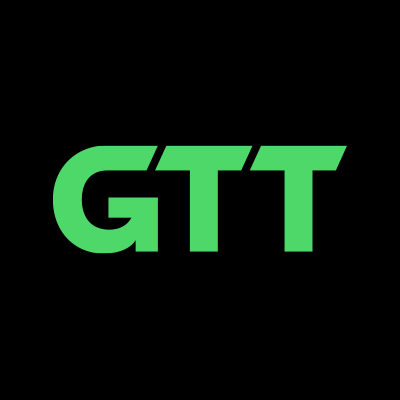Today, the average global citizen can seamlessly transact online with businesses worldwide despite geographical boundaries. Our telecommunications connectivity knows no limits because of the capabilities of Tier 1 Internet Service Providers (ISPs)!
If you’re reading this article over an internet connection, it’s all thanks to the infrastructural investments of a Tier 1 ISP.
Whether it’s an online business conference virtually connecting corporate teams from across the world or an eCommerce transaction that bridges the gap between our shopping cart and bank account seamlessly, we all take global telecommunications for granted—but it’s all in a day’s work for our ISP.
But let’s step back a little to see what it takes for telecom giants to provide us with this seamless connectivity.
In this article, we discuss the advantages of global Tier 1 IP networks and how GTT’s Tier 1 IP Network helps global enterprises enhance their network connectivity.
What Are Global Tier 1 IP Networks?
Global Tier 1 IP networks form the foundation of internet services across the globe.
Let's use the popular analogy of roads and highways to understand the role of Tier 1 ISPs. The government owns physical highways in our cities. It invests in building road networks to facilitate trade and commerce and to enable citizens to travel, commute to work and reach out to communities and businesses across borders.
Similarly, the information superhighway (aka the internet) provides telecommunications capabilities to communicate and transact with people and businesses worldwide.
However, the infrastructure required to enable this information superhighway is not owned by governments.
Large telecom companies invest in building fiber optic cables-undersea and overland-to transmit data seamlessly all the way around the planet. These are the Tier 1 IP networks. They own and operate the physical infrastructure that forms the internet's backbone.
And they don’t have to buy their way onto the information superhighway—quite simply because they own it!
Key Differences Between ISP Tiers
There is a clear hierarchy of ISPs that provide internet access to end users and other organizations. They are segmented into 3 levels called Tier 1, Tier 2 and Tier 3 ISPs, with Tier 1 being at the top rank, with the highest connective power and global reach.
Tier 1 ISP Tier 1 ISPs have a global presence, and most importantly, they build and own extensive network infrastructure spanning multiple countries.
Tier-1 networks have access to the entire internet—this means that they do not need to ‘buy’ connectivity or ‘purchase IP transit’ from any other internet provider.
Each Tier 1 ISP owns a part of the physical infrastructure (including high-speed fiber optic cables, data centers, and routing equipment) that carries data across the world. In areas where they don't have their own infrastructure, they negotiate with other Tier-1 networks to get free access to their network. These are known as direct peering agreements or settlement-free peering.
In this way, the Tier 1 ISP ensures global reach and immense bandwidth to handle massive amounts of internet traffic. A Tier 1 ISP is, therefore, the only category of the hierarchy that can provide reliable Direct Internet Access (DIA).
At this point, it may be worthwhile to distinguish between Global Tier 1 and Regional Tier 1 networks. Global Tier 1 networks have a worldwide presence, while Regional Tier 1 networks have a substantial presence in a specific region or continent.
Some global Tier 1 ISPs include Verizon, AT&T, NTT, Tata Communications, Deutsche Telekom, CenturyLink (formerly called Level 3), Zayo Group and, of course, GTT.
The next time you plan a virtual event, make a video conference call, or transfer sensitive data across offices, remember that behind the scenes, a Global Tier 1 network is working tirelessly to make it all happen.
Tier 2 ISPs Tier 2 ISPs may not have global reach, but they have a prominent presence in a particular region or country.
They buy transit from Tier 1 ISPs and provide transit to Tier 3 ISPs. While Tier 1 ISPs cover enterprise-scale global clients for dedicated internet access, the Tier 2 network providers cover large regional commercial establishments, providing them with substantial bandwidth and reliable internet connectivity.
Tier 3 ISPs If Tier 1 ISPs give you worldwide coverage, Tier 3 ISPs give you a localized, customized experience of seamless connectivity. They’re the face of the ISP for end-users. A Tier 3 ISP is the vendor who’s on call if your internet connection is down. Or an overhead cable in your neighborhood comes down during a storm.
Tier 3 ISPs rely on transit services from Tier 1 or Tier 2 ISPs to access the broader internet. Since they don't own much network infrastructure, they don't have the resources to handle significant amounts of traffic.
The Advantages of Global Tier 1 IP Networks
Tier 1 ISPs offer significant advantages over the other tiers, including speed, reliability, global reach, and advanced network security.
Low latency and high-speed routing performance
Today, we can make a video call to clients halfway across the planet and converse with them as if they were sitting across the room from us. There's no delay, no lag and hardly any break in connectivity (well, almost!). That's low latency.
Owing to their peering relationships with other Tier 1 networks and major content providers, Tier 1 ISPs provide efficient data transfer and faster response times for applications and services.
Increased uptime
Tier 1 networks invest heavily in network redundancy and failover mechanisms to ensure high uptime. Their extensive infrastructure allows them to access multiple routing paths and quickly re-route traffic on backup paths to minimize service outages.
Global connectivity
Tier 1 ISP offer worldwide connectivity as they can access any part of the internet thanks to their extensive infrastructure and peering relationships with other ISPs.
Tier 1 ISPs use their own autonomous systems (ASNs) to route traffic and do not need to purchase transit services from other ISPs to access the internet.
Advanced Network Security
The telecommunication sector is inherently vulnerable to cyberattacks. Since they have stringent uptime SLAs with customers, Tier 1 ISPs cannot afford any service outage due to cyberattacks.
That’s why Tier 1 ISPs offer advanced security measures to protect data transmitted through their network.
Work with a Tier 1 ISP to ensure that the internet connection your employees use is secure and your data is protected.
With Secure Access Service Edge (SASE) security and other integrated solutions, GTT has enhanced security covered, so you never have to worry.
Choose the Right Global Tier 1 IP Network Provider
Choosing a Tier 1 IP Network Provider is a critical decision for enterprise-scale companies. The right provider can significantly impact network performance and have an impact on operations that are dependent on network connectivity.
Scalability
Before you choose an ISP, ensure that the provider can scale as your business grows—with the ability to support more transactions, higher bandwidth requirements and more stringent SLAs.
Integration capabilities
Check if the Tier 1 ISP you intend to work with can seamlessly integrate with your existing networking infrastructure, such as network cables, routers, applications and tools. The provider should offer APIs and other integration methods to ensure smooth implementation and management.
Security features
Does your chosen ISP offer robust security features to protect sensitive data during transit? Look for an ISP with advanced security protocols, encryption, and firewall services to safeguard your network. Check out GTT’s cutting-edge SASE Security and FWaaS services.
Customer service
Check if your chosen provider offers 24/7 technical support to address issues promptly and minimize downtime. Consider whether the ISP provides sufficient support in all the locations where you have offices and whether you need native language support in certain areas.
Pricing model
Finally, before you zero down on an ISP, review their pricing structure carefully to understand the total cost of ownership (TCO). Consider the cost of the services offered to you, including any additional charges for extra bandwidth usage or extra support.
GTT is a Tier 1 Global ISP Provider offering you IP transit, Dedicated Internet Access (DIA), Broadband and 5G services.
Enhance Your Connectivity With GTT’s Tier 1 IP Network
GTT empowers enterprise-scale businesses with reliable connectivity, robust cybersecurity, and limitless scalability to accommodate higher bandwidth requirements, global coverage, and unparalleled uptime.
GTT gives you unparalleled reach.
Our global Tier 1 IP network connects 600+ PoPs, providing service reach to more than 140 countries—from North America to Europe, Asia to Australia. We operate with 220 Tbsp of total IP edge capacity and directly— connect to one-third of all internet routes.
Additionally, GTT offers Secure Access Service Edge (SASE) security that tightly integrates security and networking into a single, unified platform.
So go ahead, stream that high-resolution corporate film, plan that virtual global sales meet or deploy a cutting-edge cloud app that requires reliable connectivity. Whether it is video conferencing, data transfer, or cloud-based apps-GTT has got you covered.





